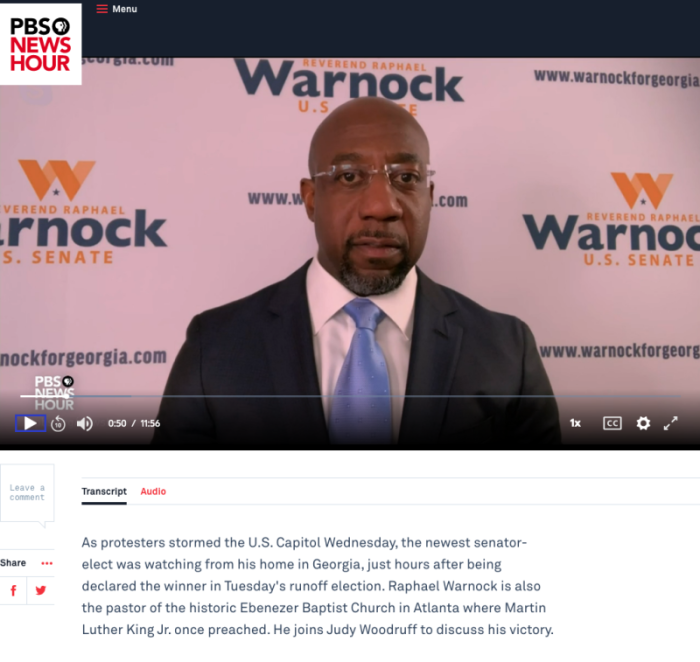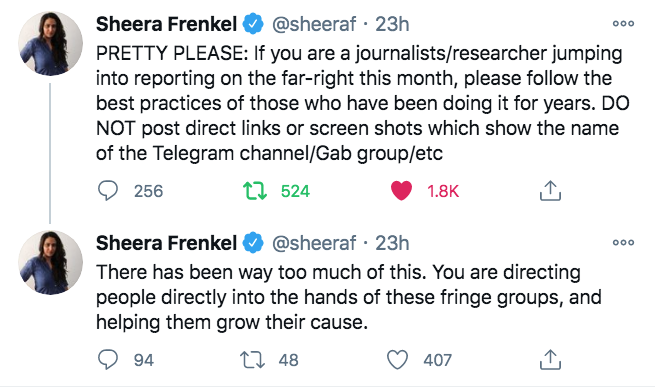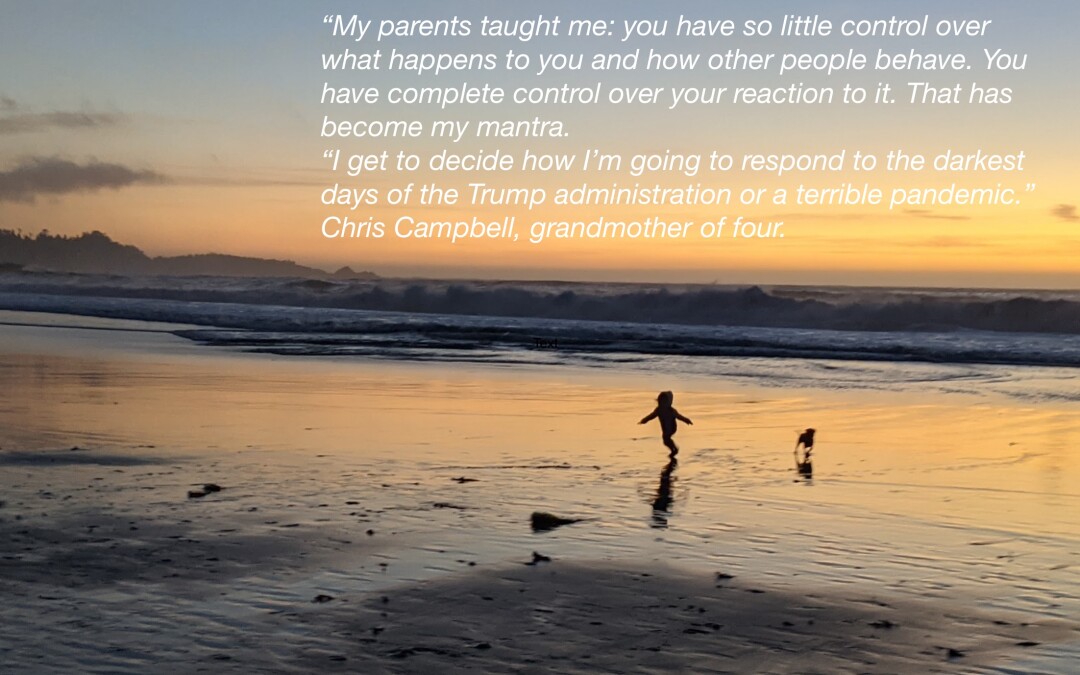I hope you and yours are staying well despite the violent insurrection in Washington DC on January 6th. This week, I want to bring you some hope and optimism for the future from an unlikely source. More on that below.
First, I’d like to share two insights that resonated with me as I sought to make sense of the attempted coup and think about a pathway forward.
The first is from our newly elected Georgia Senator, Raphael Warnock. PBS’s Judy Woodruff asked how we can get anything done with such a divided country and Senate. Warnock said “we have no choice!” and added this:
“Either we will learn to live together as sisters and brothers, or we will perish together as fools.” Martin Luther King Jr. speech in St. Louis, on March 22, 1964 (In Warnock’s version he added the sisters. Amen to that.)

And Warnock posed this key question: Do we want to continue in our silos of violent racial, political and religious hatred, or do we want to build what Dr. King called the beloved community?
The other resonant voice for me was President Barack Obama. He laid the blame firmly with Trump and his enablers. I felt that he was also speaking directly to me and all my fellow journalists when he wrote: “For two months now, a political party and its accompanying media ecosystem has too often been unwilling to tell their followers the truth…” Obama offered Republican leaders a choice: to either continue down a dark path or “choose reality…and choose America”
Although the majority of the media blame rests with Fox News, Sean Hannity, and all those media and social media platforms that allowed the false narrative of a “stolen election” to be amplified, every single journalist should examine his or her actions over the last four years. For example, NPR’s failing to call a lie a lie was a mistake in my view. Mary Louise Kelly explained “A lie is a false statement made with intent to deceive… Without the ability to peer into Donald Trump’s head, I can’t tell you what his intent was.”
I think the events of last week make that intent to deceive –– and win at all costs –– abundantly clear.
By contrast, the BBC, The New York Times and other mainstream outlets used the word “lie” when it was merited, countless times. Yet even some highly regarded colleagues inadvertently fueled the fire by demonstrating lazy journalism. On January 8th, the BBC’s North America editor, Jon Sopel’s retweet of Trump’s lies about a stolen election, without clearly flagging it as a lie, was a powerful case in point. A few hours later, Twitter finally gave Trump the red card he deserved months ago, but the damage was done. Sopel and those like him need to follow the plea of New York Times journalists like Sheera Frenkel and think carefully about how they use their powerful media megaphones.

Statements from other political elders like Bill Clinton, Jimmy Carter and George W Bush are also worth reading. Which brings me to my latest BBC report.
When I read that Americans over 70 are showing remarkable resilience and optimism during this pandemic and lockdown, I thought, how can that be? We all know that the older you are, the more likely that Covid-19 can kill you, but here’s a fascinating statistic: in the United States, an 85 year-old grandmother who gets Covid is 10,000 times more at risk of death than her 15 year-old grandchildren. With odds like that, and the lockdown isolation you’d think that she’d be a lot more anxious and depressed than them, especially with the post-holiday spike in cases and prolonged lockdowns.
Instead, I discovered compelling research that demonstrates that the reverse is true. And found some valuable truths and life lessons for you and me.
 Due to time constraints, the BBC wasn’t able to air all of the insights of the wise 19 year-old I interviewed, so I’m adding his wisdom at the end of this transcript and on the Fresh Dialogues podcast.
Due to time constraints, the BBC wasn’t able to air all of the insights of the wise 19 year-old I interviewed, so I’m adding his wisdom at the end of this transcript and on the Fresh Dialogues podcast.
Listen to the podcast at the BBC Health Check page (starts @14:50)
Or to the Fresh Dialogues podcast below:
*
*
Here’s a transcript of my BBC Report:
Riane Eisler is a grandmother of four, author, and President of the Center for Partnership Studies in Northern California. At 89, she’s energetic, busier than ever, and even optimistic about the immediate future.
Riane Eisler: Despite my age I’m still very very active doing online webinars, writing articles etc. Covid has not really changed my life that significantly. I’ve adjusted.
We tend to devalue our elders… Elders can be creative, active, and for me retirement is just… I don’t want to retire!
New research shows that although there are heightened levels of stress, anxiety and loneliness across all generations, older adults, like Eisler, are showing remarkable resilience, despite their forced isolation. Stanford University researchers surveyed almost 1000 Americans from 18 to 76 years-old in the early months of the lockdown.
Here’s Yochai Shavit, who co-authored the Stanford study.
Yochai Shavit: We found that older people reported feeling negative emotions less frequently and less intensely, and positive emotions more frequently and more intensely. Younger adults fared mostly worse than older adults.
Why was this?
Of course, it could be partly explained by the fact that younger adults are more likely to be directly and severely impacted by the pandemic’s economic and social fallout than older adults, especially retirees. But the study points to other reasons.
Yochai Shavit: As people age, they’re more motivated to find meaning and satisfaction in their present moment.So feeling joy becomes more important in older ages and worrying becomes less useful. When you have much of your life already lived, what we call limited time horizons, the future is just less of a priority and it becomes about what you choose to focus on.
Chris Campbell, a grandmother of four and retired attorney in Monterey County, agrees her time horizon contributes to her resilience.
Chris Campbell: I feel great today…It’s much easier when you’re in the last chapters of your life, as I am… to be in the moment and be very aware you have limited time left. To dilute or impair the time you have left with worry and anxiety is just so counterproductive. And I think that might be the secret to why we elderly people are perhaps not as stressed as younger people by this.
At 19 years of age, Luke Melcher is one of those stressed younger people. For his generation, there’s no apparent limit to the time horizon. But the opportunities at the start of their adult lives have been blocked by Covid’s restrictions – leaving many frustrated and angry he says.
Luke Melcher: I think a lot of kids felt cheated of very important years both academically and socially. We do all understand the significance of the virus but it’s a time when we are supposed to launching: going off to college or leaving college and going off into the real world. A lot of kids have been looking forward to this. It’s been hard for kids thinking that’ll never end. That’s what it feels like right now. It’s been going on for so long. It feels like it’s never going to stop.
Chris Campbell sympathises with how those much younger than her feel, even though the risk of death from Covid-19 is much higher for her age group.
Chris Campbell: There’s a collective sadness among many of us at the pain this virus has unleashed. Not just all the deaths, but the people whose livelihood has been destroyed and can’t feed their children.
So how do elders process that sadness and still nurture feelings of joy and pleasure? Yochai Shavit cites two key areas on which older people tend to focus to regulate their emotions:
Yochai Shavit: The first is emotionally close relationships become more of a priority… how they treat and approach these relationships: less confrontational, more forgiving, more generous to others. Making a positive social environment a priority.
The other thing is… when people of different ages are presented with stimuli that have positive and negative aspects, older adults tend to focus on the positive aspects, younger people on the negative aspects of things. Negative information is very useful in terms of evolutionary theory, when you have a long future ahead of you: it tells you what to avoid. (5min45secs elapsed at this point)
Kerstin Emerson of the University of Georgia adds some nuance to the correlation. During the spring lockdown, she surveyed the stress levels of about 800 people in two age groups: 60 to 70 year olds and 71 and older. She was surprised to find that, despite higher physical risk from Covid, 74% of the older group were “not that stressed,” compared to 56% of the younger group.
Emerson asked open-ended questions in her study and discovered these insights.
Kerstin Emerson: Lots of people worried for family members and society, but people remarked that this wasn’t the first time they’d gone through hard times… They know how to do this. They’re talking about resilience. By the time you’re 70 or 80 or 90, you’ve gone through some stuff. You have these coping mechanisms. I asked (them): how have your health behaviors changed since beginning social distancing? Some of them were the positive ones like exercising more, some were the less positive ones like drinking more, sleeping less, eating more.
The 70 plus were engaging in less of the negative health behaviors: less likely to drink more, eat more and sleep less. Their coping mechanisms were more positive: reading, taking walks… And being creative with our social connections, technology…
Some people who’re struggling emotionally are reframing 2020 as a gap year, giving themselves permission for all the missed deadlines, the lack of achievements or career advancement, or even employment.
Chris Campbell, now in her 8th decade, has this wisdom:
“My parents taught me: you have so little control over what happens to you and how other people behave. You have complete control over your reaction to it. That has become my mantra in my elderly years. I find it’s extremely powerful: I get to decide how I’m going to respond to the darkest days of the Trump administration, or a terrible pandemic… the pain and destruction that they brought.” Chris Campbell, retired attorney and grandma of four.
Riane Eisler has found a purpose in her writing and collaborations that sustains and energizes her. She frames the pandemic and lockdown in positive terms.
Riane Eisler: I think it’s a time for reflection on our personal lives and our social institutions. Look what it revealed about the lack of resilience… lack of justice in our economy. I’d advise people to try to be of service in some way… you can have zoom sessions with foster children, someone whose need you can help to meet…I think that can help us a great deal.
And what’s her advice for older people who don’t have access to the Internet?
Riane Eisler: Use what you’ve got which is the telephone. Voice can be very important: listening, listening to someone who perhaps needs to be heard, can be very healing really.
Maybe it’s time we all called our mothers, our fathers or an elderly relative or friend, to check in?
***
And here are some insights from 19 year-old Luke Melcher of Northern California, who speaks eloquently about the anger of his generation.
I started by asking him to rate the intensity of this frustration on a scale of zero to ten:
Luke Melcher: Fear of missing out on this time of my life would definitely be a ten because so much important stuff goes on when you’re a freshman in college, a senior in high school, so that I was very frustrated about… friends who didn’t get to do prom and graduation. In this time in our lives, we get control of our lives, we’re off to college, not in our parents’ homes, we can vote, we can drive. When something happens that’s out of our control, that pushes us back a couple of steps, then that’s where a lot of the anger comes from. A lot of adults are obviously settled. It’s easier for them, when Covid hit to be: it’s all good, we’re going to hunker down. A lot of kids felt they were cheated out on… very important years, both academically and socially. A lot of adults don’t put themselves in kids’ shoes. They don’t remember when they were launching off to college or launching off to jobs after college, and how painful that is to have to move back in with your parents and pause again.
Luke also shared some coping mechanisms that are working for him: things like intense workouts.
Luke Melcher: A lot of running and intense weight workouts, anything to get frustrations out… a time for me to escape and get a good sweat on… has helped so much. It made me not think about what’s going on in the world.
He’s even been meditating.
Luke Melcher: Sometimes I’d just be silent, especially when I was feeling a little depressed or angry I’d just sit and let the emotions come to me and just let them go….
***
Thank you for reading Fresh Dialogues. Let’s hope the next time we connect, Joe Biden will be our President and the majority of Americans –– honest, decent people –– will reject the violence of January 6th and unite behind our common goals and shared humanity. And let’s hope that Trump and his enablers will be held accountable for their misdeeds, and reforms put in place so that Trumpism doesn’t raise its ugly head ever again.
As Thomas Jefferson said: Truth is great and will prevail.
 Finally: many thanks to the excellent production skills of the BBC’s Andrew Luck Baker who gave the report added gravitas by adding some musical flourishes.
Finally: many thanks to the excellent production skills of the BBC’s Andrew Luck Baker who gave the report added gravitas by adding some musical flourishes.
This report is dedicated to my 95 year-old friend and fellow journalist, Elayne Wareing Fitzpatrick who inspired my research. She’s working on her final book titled Transforming Despair and told me last Fall: “I’ve never been happier in my life.”




